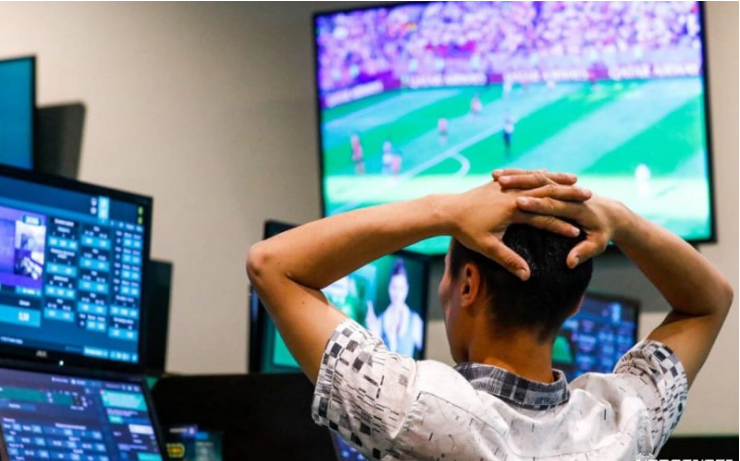- Home
- Wiki
- Learning Center
- What Does Ludomania mean?
What Does Ludomania mean?
Ludomania (problem gambling) is an addiction to gambling or computer games. Ludomaniacs cannot control their desire to play and gradually isolate themselves from the outside world, devoting themselves solely to their addiction.
Ludomania affects people of different ages, genders, and social statuses. Psychiatrists recognize unhealthy attraction to gaming as a severe mental disorder requiring specialists' intervention.
Stages of disease development
Not all fans of gambling and computer games are ludomaniacs. When a person perceives gaming as a one-time entertainment or hobby but controls the time spent on games, there is no reason for concern.
Problem gambling is characterized by an unhealthy attraction to gaming, where a person cannot exist comfortably without placing bets. Gaming thoughts persist throughout the day, and an irresistible desire and craving for gambling arise. Without any medical help, the disease develops quite rapidly.

Stages of gambling addiction development:
- Mild form: An attraction to gaming without rational reasons, constant increase in playing time, and the inability to refuse an offer.
- Moderate form: Gaming takes a priority position in a person's life. The dependent person prioritizes gaming over work, family, friends, and hobbies.
- Severe form: Complete or partial loss of control over one's life. The player loses their job, the family borrows money, sells the family property, or even commits crimes."
Medical professionals explain pathological addiction's rapid development as a natural body process during gaming. Increased production of hormones accompanies the feeling of excitement. During intensive gaming, the concentration of hormones does not allow the nervous system to function normally. By nature, ludomania resembles drug addiction or alcohol dependence.
It is almost impossible to cure ludomania on your own. At the first signs of addiction, it is necessary to seek help from a specialist immediately.
Causes of addiction
The rapid development of the gambling industry and the availability of online betting websites have led to the widespread occurrence of gambling addiction. Aggressive advertising on television, social networks, messengers, and video hosting sites attracts people to the game. Specialists highlight particular reasons for addiction:
- Motivation - the desire for easy winnings, earnings, and luxurious life;
- Substitution - the desire to "hide" behind gambling from stress and depression to fill life with positive winning emotions;
- Psychological characteristics - an uncontrollable desire arises immediately after the first gaming experience.
People with pronounced character traits are susceptible to gambling addiction:
- Irritability;
- Aggression;
- Depression;
- Repression.
How to Get Rid of Game Addiction
It is challenging to overcome addiction on your own. If symptoms of ludomania are detected, it is essential to seek help from a psychologist who can diagnose the problem and provide recommendations.
Only a specialist in addiction medicine (a narcologist) can help the player with severe cases of addiction.
Treating pathological addiction to gambling involves a comprehensive approach in conjunction with long-term rehabilitation. The treatment plan for ludomania is similar to that for drug addiction.
According to research by the National Association of the United States on gambling problems, the average person has a 6% chance of becoming a criminal, a 32% chance of becoming a drug addict, a 34% chance of becoming an alcoholic, and a 48% chance of becoming a gambling addict.
Statistics figures that in 60% of cases, the ludomanics lose their jobs and families, and in 40% of cases, suicide attempts might occur.
How to Protect Yourself from Game Addiction
Preventing ludomania is more manageable than curing it.

How to prevent the development of gambling disorder:
- Clearly define the amount of money allocated for the game.
- Treat the game as entertainment. Do not perceive sports betting as a source of income.
- Take into account the opinions of friends and family. That is essential if loved ones say a person is paying too much attention to betting.
- Do not play on credit or with other people's money.
- Treat the amount placed as already lost.
- Do not play while under the influence of alcohol or drugs.
- Sports betting should not be the only form of entertainment and relaxation.
- Do not try to make up for losses.
- Do not use sports betting to distract yourself from life's problems. Betting can only provide temporary relief from stress.
- If there are any suspicions of developing uncontrollable addiction, immediately stop playing.
If a player cannot stop playing independently, it is necessary to seek help from a specialist. Ludomania is a medical problem that addiction specialists consider one of the strongest addictions, similar to drug addiction.
Tips for Parents
Teenagers are often susceptible to gaming addiction due to their unstable mental state and noticeable stress. Dependency in children manifests in a more aggressive form. It leads to terrible consequences – the child avoids social interaction, stops caring for themselves, and becomes isolated, nervous, irritable or aggressive. Usually, according to the rules of most online casinos and bookmakers, only people over 18 can play for money. Still, not all adults, including recent teenagers, can calm down against gambling addiction.
Recommendations for parents:
- Please communicate with your child regularly to learn about their new interests.
- Educate your children about different forms of addiction and their consequences.
- Develop your child in a well-rounded manner and minimize their time spent alone or playing computer games.
- Monitor your child's emotional state. Open, friendly, and diverse children are less susceptible to addiction.
- If gambling or gaming addiction appears in a child, it is necessary to seek a child psychologist immediately.
- Unlike adults, teenagers rarely succumb to the influence of gambling to make money. Often, the problems lie in internal psychological disorders.

Comments0